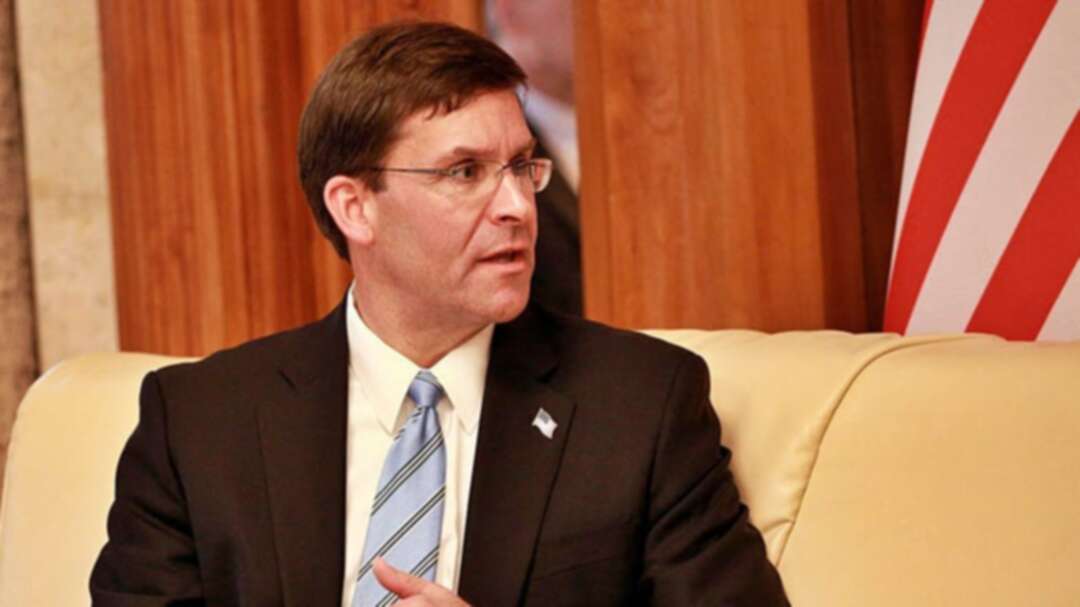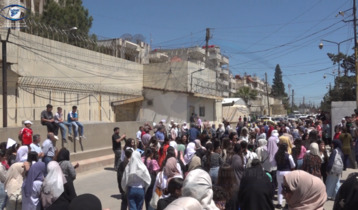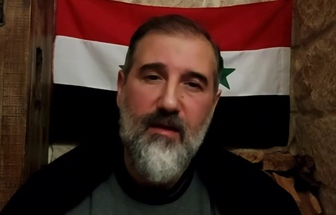-
Iraq demonstrations ‘a telltale sign’: US Defense Secretary Esper

US Defense Secretary Mark Esper said on Saturday demonstrations in Iraq are partly against Iran’s involvement in the country and called the protests “a telltale sign.”
“People
Iranian General Qassem Soleimani, the commander of the Islamic Revolutionary Guard Corps - Quds Force, reportedly visited the capital city of Baghdad twice last month ‘to advise,’ according to sources.
David Schenker, the top US diplomat for the Middle East, said on Friday that Soleimani’s presence in Baghdad is “unorthodox.”
“It is incredibly problematic and it is a huge violation of Iraqi sovereignty,” said Schenker.
Anti-government protesters set fire to the Iranian consulate building in southern Iraq three times last week and removed the Iranian flag from the building, replacing it with an Iraqi one.
Esper described the Iranian regime as being “under stress” and said that the US was “prepared for any contingency.”
At least 400 people have been killed in Iraq since October 1, when thousands took to the streets in mass protests in Baghdad and the predominantly Shi’a south. The protesters accuse the government of being corrupt and decry growing Iranian influence in Iraqi state affairs.
Esper acknowledged that he was worried by instability in Iraq and stressed the US does not want the country to collapse.
“What we don’t want is
Iraq’s parliament approved the resignation of Prime Minister Adil Abdul Mahdi on December 1, amid ongoing violence and anti-government demonstrations in the capital. Lawmaker Mohamed al-Daraji said that parliament faced a “black hole in the constitution” that didn’t clearly set out how members of parliament should deal with a premier’s resignation.
Tags
You May Also Like
Popular Posts
Caricature
BENEFIT Sponsors BuildHer...
- April 23, 2025
BENEFIT, the Kingdom’s innovator and leading company in Fintech and electronic financial transactions service, has sponsored the BuildHer CityHack 2025 Hackathon, a two-day event spearheaded by the College of Engineering and Technology at the Royal University for Women (RUW).
Aimed at secondary school students, the event brought together a distinguished group of academic professionals and technology experts to mentor and inspire young participants.
More than 100 high school students from across the Kingdom of Bahrain took part in the hackathon, which featured an intensive programme of training workshops and hands-on sessions. These activities were tailored to enhance participants’ critical thinking, collaborative problem-solving, and team-building capabilities, while also encouraging the development of practical and sustainable solutions to contemporary challenges using modern technological tools.
BENEFIT’s Chief Executive Mr. Abdulwahed AlJanahi, commented: “Our support for this educational hackathon reflects our long-term strategic vision to nurture the talents of emerging national youth and empower the next generation of accomplished female leaders in technology. By fostering creativity and innovation, we aim to contribute meaningfully to Bahrain’s comprehensive development goals and align with the aspirations outlined in the Kingdom’s Vision 2030—an ambition in which BENEFIT plays a central role.”
Professor Riyadh Yousif Hamzah, President of the Royal University for Women, commented: “This initiative reflects our commitment to advancing women in STEM fields. We're cultivating a generation of creative, solution-driven female leaders who will drive national development. Our partnership with BENEFIT exemplifies the powerful synergy between academia and private sector in supporting educational innovation.”
Hanan Abdulla Hasan, Senior Manager, PR & Communication at BENEFIT, said: “We are honoured to collaborate with RUW in supporting this remarkable technology-focused event. It highlights our commitment to social responsibility, and our ongoing efforts to enhance the digital and innovation capabilities of young Bahraini women and foster their ability to harness technological tools in the service of a smarter, more sustainable future.”
For his part, Dr. Humam ElAgha, Acting Dean of the College of Engineering and Technology at the University, said: “BuildHer CityHack 2025 embodies our hands-on approach to education. By tackling real-world problems through creative thinking and sustainable solutions, we're preparing women to thrive in the knowledge economy – a cornerstone of the University's vision.”
opinion
Report
ads
Newsletter
Subscribe to our mailing list to get the new updates!






















